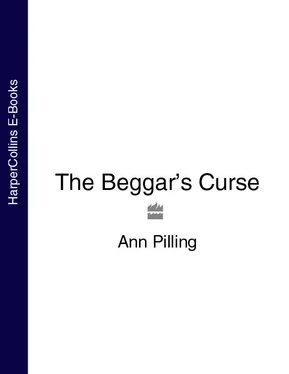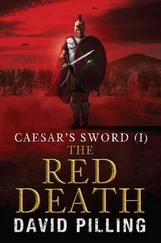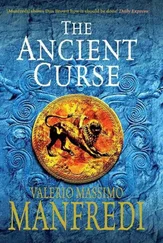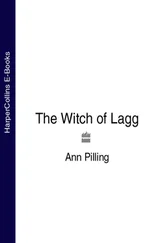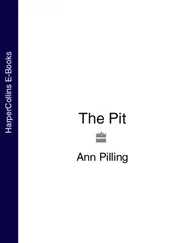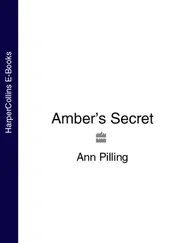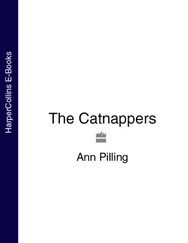The Beggar's Curse
Ann Pilling

DEDICATION Dedication Chapter One Chapter Two Chapter Three Chapter Four Chapter Five Chapter Six Chapter Seven Chapter Eight Chapter Nine Chapter Ten Chapter Eleven Chapter Twelve Chapter Thirteen Chapter Fourteen Chapter Fifteen Chapter Sixteen Chapter Seventeen Chapter Eighteen Chapter Nineteen Chapter Twenty Chapter Twenty-One Afterword Keep Reading Also by the Author Copyright About the Publisher
For Benjamin and Thomas
Cover
Title Page The Beggar's Curse Ann Pilling
Dedication DEDICATION Dedication Chapter One Chapter Two Chapter Three Chapter Four Chapter Five Chapter Six Chapter Seven Chapter Eight Chapter Nine Chapter Ten Chapter Eleven Chapter Twelve Chapter Thirteen Chapter Fourteen Chapter Fifteen Chapter Sixteen Chapter Seventeen Chapter Eighteen Chapter Nineteen Chapter Twenty Chapter Twenty-One Afterword Keep Reading Also by the Author Copyright About the Publisher For Benjamin and Thomas
Chapter One
Chapter Two
Chapter Three
Chapter Four
Chapter Five
Chapter Six
Chapter Seven
Chapter Eight
Chapter Nine
Chapter Ten
Chapter Eleven
Chapter Twelve
Chapter Thirteen
Chapter Fourteen
Chapter Fifteen
Chapter Sixteen
Chapter Seventeen
Chapter Eighteen
Chapter Nineteen
Chapter Twenty
Chapter Twenty-One
Afterword
Keep Reading
Also by the Author
Copyright
About the Publisher
The Ballad of Semmerwater
Deep asleep, deep asleep,
Deep asleep it lies,
The still lake of Semmerwater
Under the still skies.
And many a fathom, many a fathom,
Many a fathom below,
In a king’s tower and a queen’s bower
The fishes come and go.
Once there stood by Semmerwater
A mickle town and tall;
King’s tower and queen’s bower,
And the wakeman on the wall.
Came a beggar halt and sore:
“I faint for lack of bread.”
King’s tower and queen’s bower
Cast him forth unfed.
He knocked at the door of the eller’s cot,
The eller’s cot in the dale.
They gave him of their oatcake.
They gave him of their ale.
He has cursed aloud that city proud,
He has cursed it in its pride;
He has cursed it into Semmerwater
Down the brant hillside;
He has cursed it into Semmerwater,
There to bide.
King’s tower and queen’s bower,
And a mickle town and tall;
By glimmer of scale and gleam of fin,
Folks have seen them all.
King’s tower and queen’s bower,
And weed and reed in the gloom;
And a lost city in Semmerwater,
Deep asleep till Doom.
William Watson
Someone was hammering on the Blakemans’ front door. Prill ran to open it, and tripped over a half-filled suitcase in the middle of the hall carpet. Her best friend Angela Stringer stood outside in the pouring rain. Her bubbly black curls had turned into limp ringlets, her anorak steamed, and there was a dewdrop on the end of her nose.
“I’ve come for the address,” she announced, shaking herself all over the doormat, like a dog. “Can’t write if I’ve no address. And you’re off tomorrow, aren’t you?”
“ Shut the front door !” Prill’s father bellowed from the top of the stairs. “It’s blowing a gale up here. Come on, Colin, give me a hand with this will you.” All that was visible of David Blakeman were two legs sticking out of the loft. Colin went up the stairs and grabbed one end of a battered trunk, and Prill steered Angela into the kitchen.
“Don’t tell me about the riding lessons,” she said, taking a pile of letters off the top of the fridge, “or I’ll be jealous.”
“Oh, I should think you’ll be able to ride up there, it sounds very rural.” Angela tried to sound encouraging. “Better than sticking to roads all the time – that’s what I’ll be doing. That’s the trouble with a place like this, it’s not the real country.”
But Prill was determined to be miserable. The one compensation for having to spend the entire Easter holiday at home, being looked after by their grandmother, was the promise of a few riding lessons with her friend. Now it was all off, and Angela was going with someone else, because Prill had to go to Cheshire with her brother Colin, and their ten-year-old cousin, Oliver Wright.
It was all a big mistake, and Prill blamed her father. He was an art teacher who really wanted to earn his living painting portraits, and when he got a chance to spend his Easter holiday doing a retired judge, up in Scotland, it sounded too good to be true.
It was. There’d been a misunderstanding somewhere. The children liked the sound of the pine forest and the moors; there was even a river with salmon in it. But Judge Cameron’s last letter had ended with a firm “P.S.”: “By all means bring your small toddler, but we regret that we cannot accommodate the older children, or dogs, as we have dogs of our own.”
Dad’s second plan had been to ask Grandma Blakeman over to “live in” for three weeks. But that fell through too. At the last minute she phoned to say she couldn’t come because the old friend she lived with had broken her hip and gone into hospital. Mr Blakeman was stuck. He couldn’t persuade Grandma to leave her little house locked up, she was too worried about burglars and burst water pipes, and besides, there were two cats to feed, not to mention all the hospital visits. But he didn’t want to give the portrait up, and he couldn’t really afford to.
Then Oliver’s parents came to the rescue. Grandma spoke to Aunt Phyllis and Aunt Phyllis spoke to Uncle Stanley. Why didn’t Colin and Prill go to Cheshire for the holidays, with Oliver? He was going to stay with a relative called Molly Bover, who took paying guests and would be delighted to have all three of them. And it would be so nice for Oliver .
“Here’s Uncle Stanley’s letter,” Prill said glumly. “And here’s the address. Use the back of the envelope.”
Angela nibbled her pencil and copied carefully, “Miss Priscilla Blakeman, c/o Mrs Bover, Elphins, Stang, near Ranswick, Cheshire.” Colin had come into the kitchen and was reading the address over her shoulder.
“I wonder who ‘Elphin’ was?” he said.
“A saint.” (Well, Angela’s father was a vicar.)
“Really? It sounds more like a goblin to me. And Stang Ugh, nothing very saintly about that. It’s a horrible name.”
“It isn’t in the guidebooks,” said Prill. “Dad looked. So it can’t be very interesting. It looks quite pretty though, on these.”
They spread Uncle Stanley’s postcards out on the kitchen table. They were brown and faded, and had a faintly musty smell, like everything he sent them. Oliver lived in a shabby London terrace overlooking the Thames, in a small flat on top of a tall, thin house occupied by elderly people in bedsitters. Aunt Phyllis, his mother, was the housekeeper. She cooked their meals, made them take their pills, and ruled them all with a rod of iron, including Oliver.
“It’s very pretty,” Angela murmured. “It’s got a duck pond with real ducks. And look at those nice old cottages. . . and those are stocks, aren’t they? It’s quite oldey worldey. What are you moaning for? I wish I was having the last week of term off, to go on holiday.”
Читать дальше
